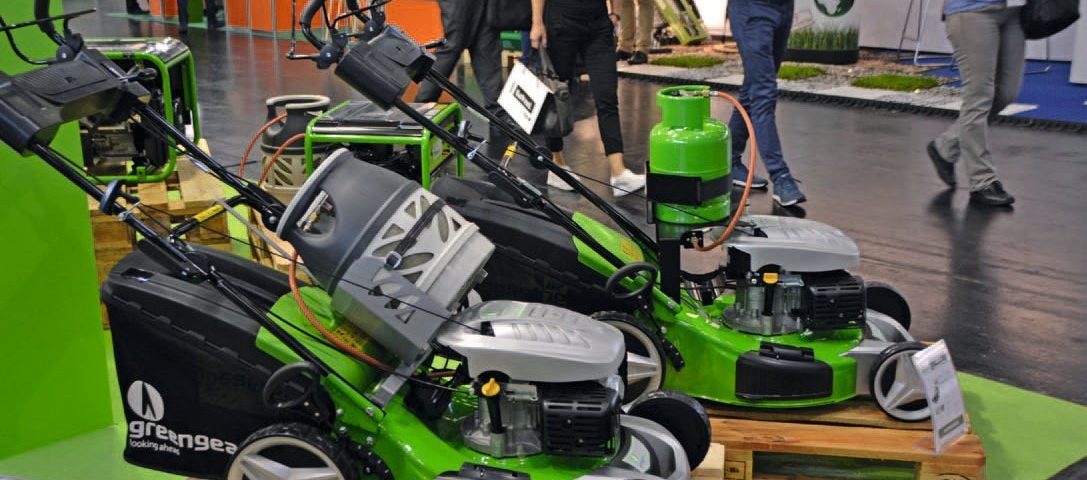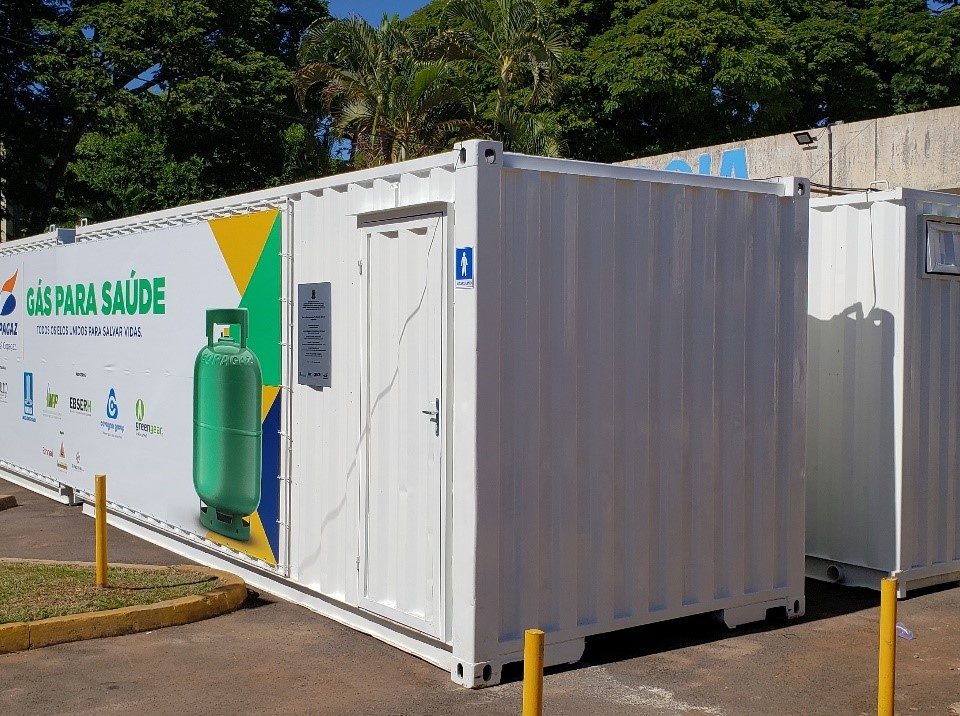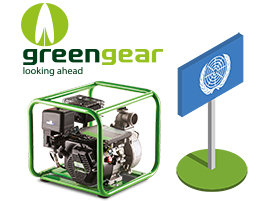
Greengear at Motor Expo 2016
September 15, 2016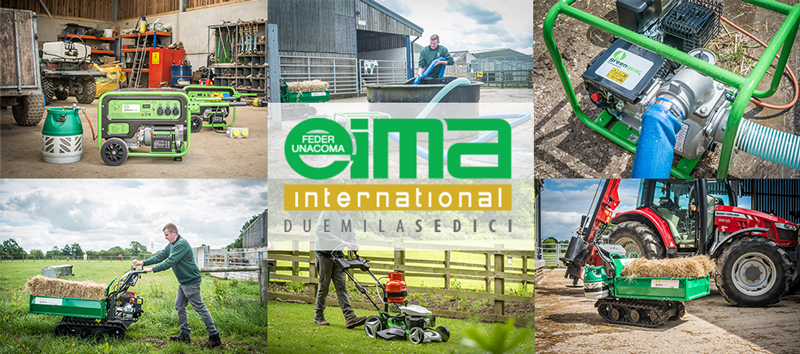
Greengear at EIMA 2016
October 20, 2016Click here for flüssiggas review in German
Editor from Flüssiggas joined us at our exhibition at the Spoga+gafa in September 2016, in Cologne to find out more about Greengear
LPG instead of gasoline and diesel:
‘LPG drivers’ reduce emissions
With the use of LPG in agricultural and garden machinery, emissions can be reduced and the local air quality improved. The result of the study “Purpose of LPG in mobile machines and impact on the air quality,” from the institute of Energy and Environmental Research (IFEU ) has carried out on behalf of DVFG shows that LPG, may be an alternative to conventional fuels, now shown by the Italian Cavagna group with their new “Greengear” range.
Mobile machinery – construction and agricultural machines or smaller devices such as brushcutters and lawnmowers – contribute to studies for the Institute for Energy and Environmental Research (IFEU), Heidelberg, disproportionately contribute to the pollutant emissions in Germany. Although their fuel consumption is only about 10% of the traffic consumed by road fuel, the particulate matter (PM) emissions are about the same levels. The nitrogen oxide emissions NEN (NOx) amount to at least 25% of the emissions from road traffic.
The high emissions can be shown to trace back that the emission limits of mobile machines are less stringent than those held by limits for road transport. In addition, many older diesel engines are still in use.
The need for action is acute: The many years exceeding the EU’s air quality for particulate matter and nitrogen dioxide at high stress locations in Germany led by the European Commission, two infringement proceedings against the Federal Republic initiative.
Stricter emission limits for new devices have already been conducted by the European Commission. To improve the air quality in the communities as well as at state and federal level, the retrofitting of diesel stock machines with expensive- time emission control technology as well as the preferred use of new machines is being discussed.
IFEU study analyzed
Potential for LPG
On behalf of the German Association LPG e. V. (DVFG), Berlin, created the IFEU study “uses of LPG in mobile machines and impact on air quality” analyzes the contribution of the use of LPG in mobile machines.
According to the IFEU study, mobile machines that are fuelled with LPG, compared with gasoline-powered machines have significantly lower emissions of hydrocarbons (HC) such as methane or benzene and carbon monoxide.
LPG equipment, such as lawnmowers, have been compared with smaller diesel units (units with an output of <37 kW) resulting in lower PM and NOx emissions. For machines with a capacity 37-55 kW, with LPG can reach lower nitrogen oxide emissions compared to diesel engines.
LPG FOR gasoline engines
In the area of equipment with gasoline engines, LPG is currently preferred for forklift trucks. In addition, there are many smaller devices with petrol engines, which are converted with little effort to run on LPG, can reduce NEN especially in the garden and leisure area.
LPG is considered International. For uses in power generators, pumps, recreational craft, sweeping machines and used for landscape maintenance.
Potential for reducing emissions
Diesel units have more than 90% of the largest share of fuel consumption in mobile machinery. In this area the IFEU study identifies a particularly relevant potential for LPG and hence an additional emission reduction, because of the established Otto applications can also be used in LPG today dominated by diesel engine applications.
Particulate matter: IFEU indicates that the annual PM emissions of mobile machinery will fall in Germany alone by the achieved stages of the stock of diesel engines of today’s current emission level of about 10 kt (booth 20100) on future about 2.3
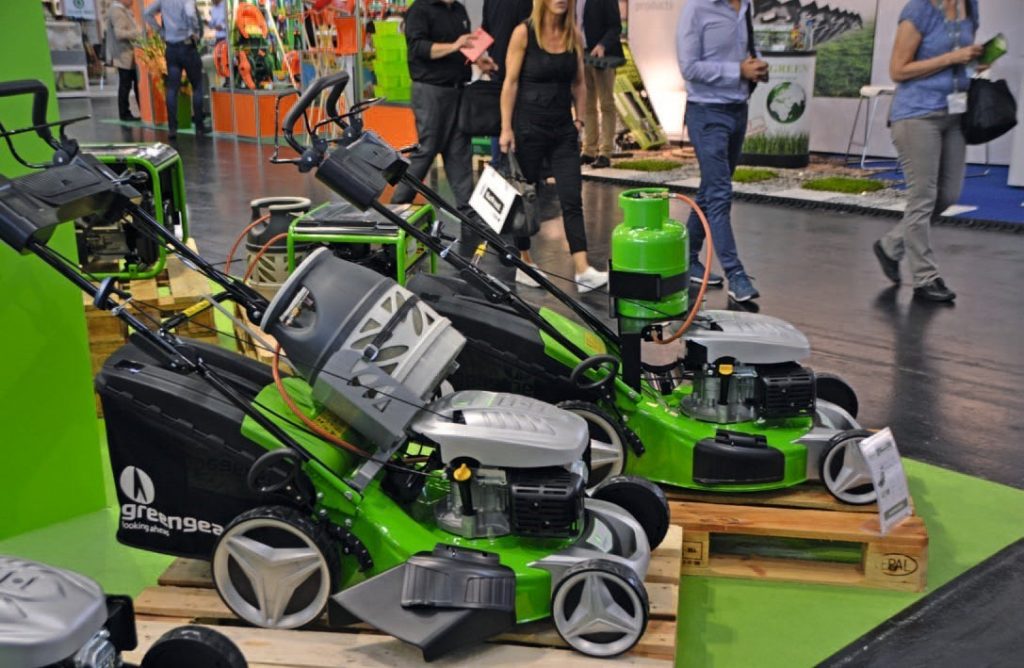
“Greengear” as a principle
As a versatile fuel, LPG can be used in mobile machinery, demonstrated by the Italian Cavagna Group in their participation in the International garden trade fair spoga + gafa 2016 in early September in Cologne. At the booth was the complete “Greengear” range: lawn mowers, chippers, splitters, transporters, pressure washers, water pumps and power generators, which are designed for the use of LPG.
For some time now Cavagna continued with this project – also looking for global cooperation partners. presenting the Cavagna “Greengear” range for the first time to a broader audience. “The interest in our products is huge,” says the managing General Partner, Miriam Cavagna. “Many prospective customers are surprised when they notice the gas cylinders on the machine and we are happy to explain the options.”
The practicality to have the gas-powered machines has already been proven: Since autumn last year, they are in the extensive gardens of Villa Carlotta on Lake Como.
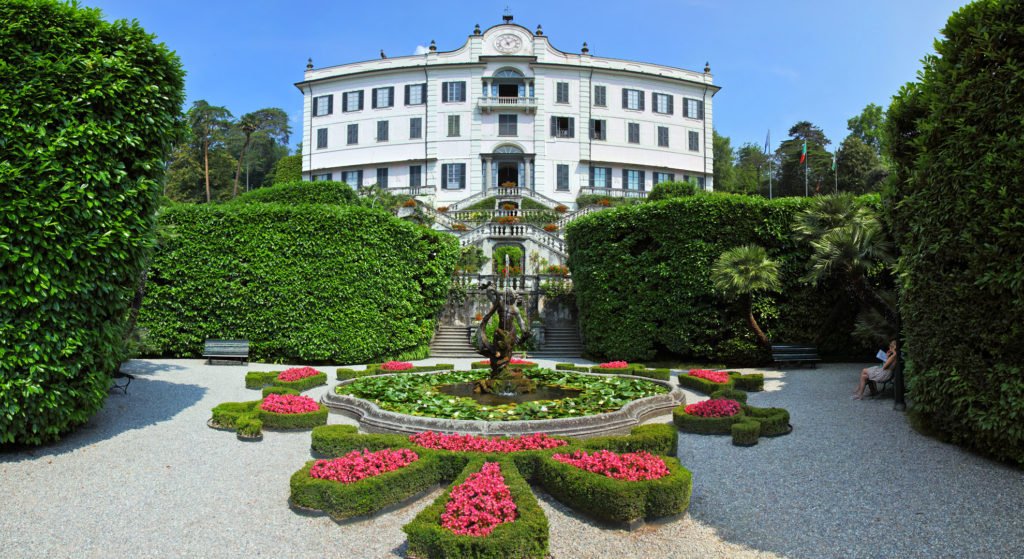
Villa Carlotta, on Lake Como, Italy. A summer residence of the 18th Century, is now a museum. The extraordinary gardens annually attract several hundred thousand visitors. It has a contract with Greengear equipment for 1 year.
Immediately next to the villa, toward the sea shore, the Italian garden is sectioned with hedges and pergolas with orange and camellia trees. The slope upwards of rhododendrons and azaleas spreads across the garden. In the garden bamboo thrives in an area of 3000 m² with over 25 species of bamboo. A stone garden and an English garden with rare requested trees and an artificial canyon complete the system.
To maintain the extensive garden plant with gas appliances Cavagna and managing the autumn 2015 season have a cooperation agreement concluded. The overall result: Villa Carlotta is itself heated by LPG. ■



